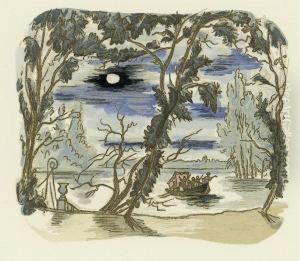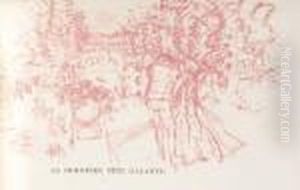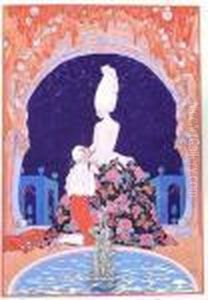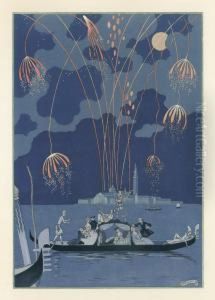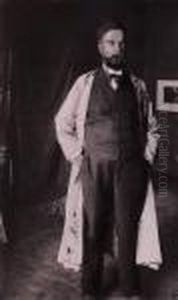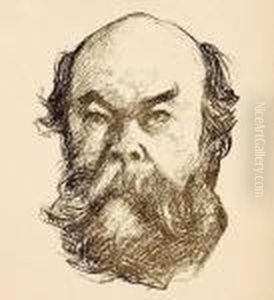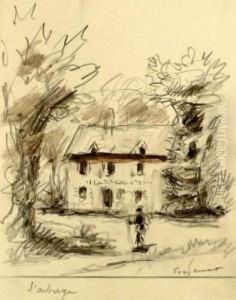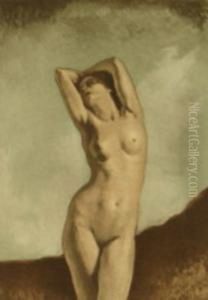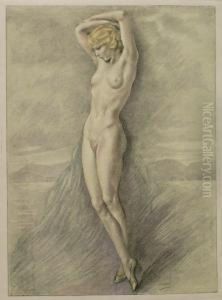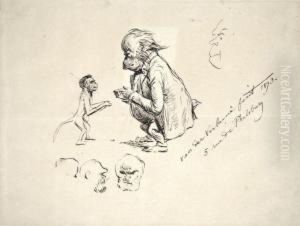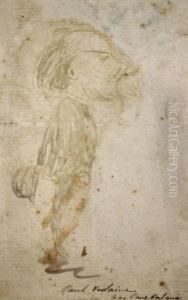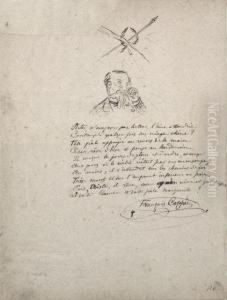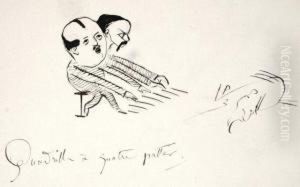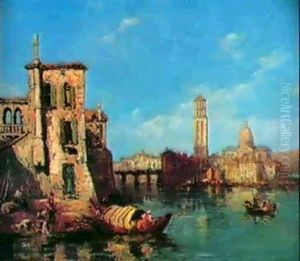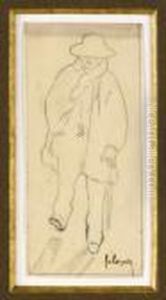Paul Verlaine Paintings
Paul Verlaine, born on March 30, 1844, in Metz, France, is one of the most celebrated French poets of the 19th century and a leading figure in the Symbolist movement. His work is known for its musicality, the innovation of its verse forms, and the emotional depth of its subjects. Verlaine's early life was marked by a traditional education and an initial attempt to pursue a career in civil service, though his heart was always inclined towards poetry. His early works, including 'Poèmes saturniens' (1866) and 'Fêtes galantes' (1869), showcase his ability to blend classical forms with a modern sensitivity to emotion and aesthetics, setting the stage for his later, more innovative work. Verlaine's life was as tumultuous as his poetry was influential. His affair with the young poet Arthur Rimbaud is legendary, not only for its impact on their work but also for its dramatic and often violent nature. Their relationship led Verlaine through a period of intense creative activity, during which he produced some of his best-known works, including 'Romances sans paroles' (1874). However, it also led to personal and legal troubles, including a prison sentence for Verlaine after he shot Rimbaud in a drunken altercation. This period of imprisonment was a turning point for Verlaine, deepening his poetic voice and leading to a more introspective and melancholic tone in his later works. After his release from prison, Verlaine struggled with poverty, alcoholism, and declining health. Despite these challenges, he continued to write, contributing significantly to the Symbolist movement and influencing a new generation of poets. His later works, such as 'Sagesse' (1881), 'Amour' (1888), and 'Parallèlement' (1889), reflect a matured perspective, blending his early musicality and lyrical beauty with a profound sense of spiritual and personal introspection. Verlaine's influence extended beyond his immediate contemporaries to shape the future of French poetry, impacting the works of poets like Mallarmé and Rimbaud and reaching even into the 20th century. Paul Verlaine died on January 8, 1896, in Paris. His life and work remain a testament to the complexity and beauty of the human spirit, his poetry a lasting legacy to the Symbolist movement and French literature as a whole. Verlaine's exploration of the nuances of emotion, form, and beauty continues to captivate readers and scholars alike, ensuring his place among the pantheon of great poets.
